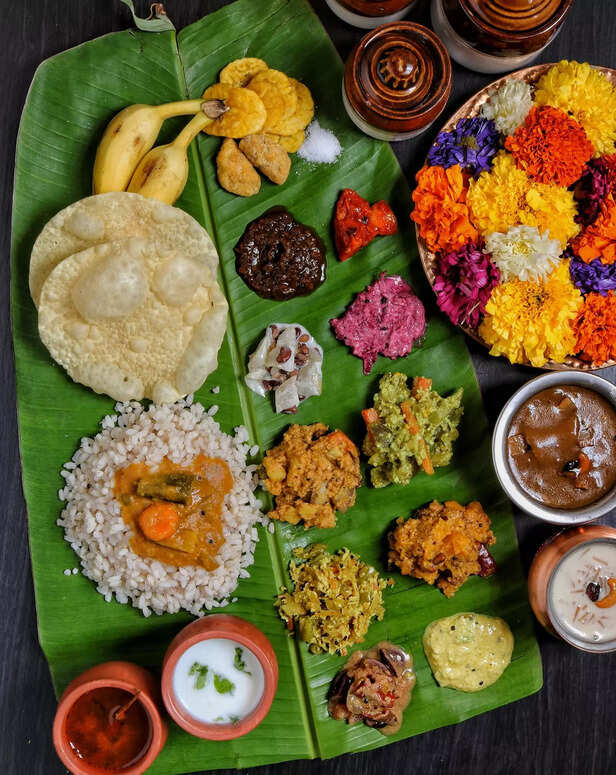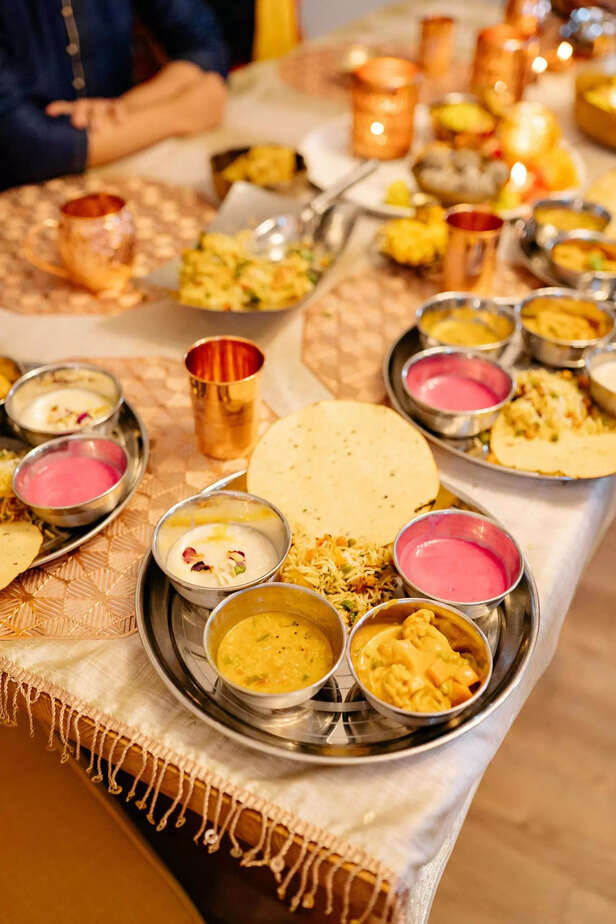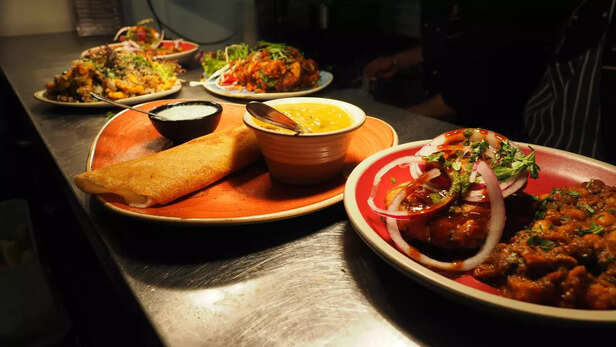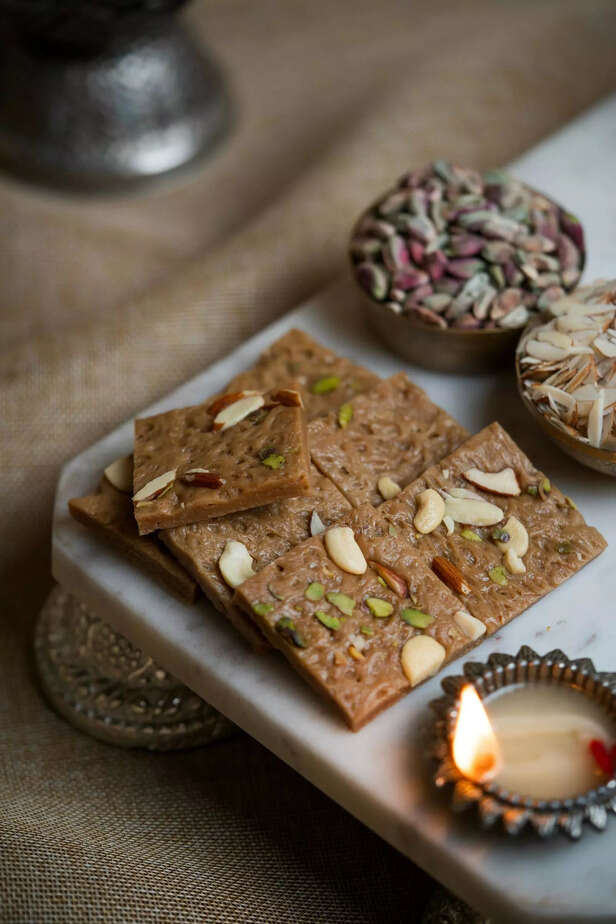Are Indians Addicted to Overeating? The Hidden Crisis in Our Diets
Ankita Rai | Sat, 15 Mar 2025
India’s love for food isn’t just about sustenance—it’s a way of life. From grand wedding feasts to festive spreads overflowing with sweets and rich delicacies, food is at the heart of every celebration. But has this deep-rooted passion turned into a habit of overeating? While hospitality and tradition encourage indulgence, modern lifestyles and unbalanced diets are raising serious health concerns. Is overeating truly a national issue, or is it just a misunderstood cultural trait?

( Image credit : Pexels )
Photo:
Food of India is no hidden affair. From the rich, creamy curries of the north to the spicy, coconut-heavy dishes of the south, food is a huge part of Indian culture. Eating is a requirement but it is also a celebration, a social activity and, often times, an emotional experience. Indians take their food seriously, be it a wedding feast, a festival spread or just an elaborate Sunday meal with family. But does this love of food lead to overeating? The answer is complicated and inextricably linked to eating habits, nutrition gaps and changing lifestyles.

Food is synonymous with generosity and hospitality in India. You offer food and when the guests say they are full, you insist they eat more, and offer more food. Social gathering centers on food, and a host’s hospitality is often gauged by how full their guests depart. Holidays such as Diwali, Eid and Pongal reinforce indulgence with a plethora of sweets and rich foods that are hard to resist.
As this tradition is rooted deeply within the native culture, it promotes routines of over-consumption that are not driven by hunger but instead by tradition or love. Unfortunately, there is a blurred line between indulgence and excess, especially when coupled with sedentary modern lifestyles.

Traditional Indian cuisine has a rich history of plant-based eating, but modern diets have been evolving. Almost 80% of Indians restrict meat from their diet, and roughly 40% are vegetarian, according to Pew Research. But that doesn’t mean their diets are necessarily healthy. As per the EAT-Lancet Report, the Indian diet is said to be among the most unbalanced in the world with too much carbohydrate and too little protein.
Indian diets are replete with meals made from refined grains such as white rice and wheat which pose high glycemic loads. So it is that a country with an abundant supply of dairy products and lentils — an important source of plant protein — still has many people suffering from protein deficiency. On top of that, regular consumption of the refined oils, deep-fried chips and sweets are leading to increasing obesity and lifestyle diseases.

While malnutrition and undernourishment continue to be problems in some areas of India, urban areas are seeing a steep increase in obesity and lifestyle-related diseases like diabetes and heart disease. India, indeed ranks among the top countries with the highest prevalence of metabolic disorders due to the traditional Indian diet, which is usually rich in unhealthy fats and simple carbohydrates.
The culture of eating too much at night is one of the biggest offenders. A big, carby dinner with little movement afterward has been associated with weight gain and worsening metabolic health. The proliferation of food delivery services and fast food culture has additionally increased overconsumption through increased food portions and caloric intake.

Now it would be unfair to say that every Indian overeats all the time, but the fact is that changing food habits, lack of nutritional awareness and social traditions lead to unhealthy eating patterns. Mindful eating, balanced nutrition, and an active lifestyle are the keys to the solution. Portion control, increasing protein and fiber, and reducing processed foods go a long way in making better choices.
After all, Indians love their food, and that’s a good thing. But maintaining the traditional love of food but combining it with modern nutritional science to ensure there is not an indisputable health crisis is a fine balance.
The Myth of Culture and An Ideal Culture of Abundance and Celebration

Indian food
( Image credit : Pexels )
Food is synonymous with generosity and hospitality in India. You offer food and when the guests say they are full, you insist they eat more, and offer more food. Social gathering centers on food, and a host’s hospitality is often gauged by how full their guests depart. Holidays such as Diwali, Eid and Pongal reinforce indulgence with a plethora of sweets and rich foods that are hard to resist.
As this tradition is rooted deeply within the native culture, it promotes routines of over-consumption that are not driven by hunger but instead by tradition or love. Unfortunately, there is a blurred line between indulgence and excess, especially when coupled with sedentary modern lifestyles.
THE GOOD: Dietary Trends: The Good and the Bad

food
( Image credit : Pexels )
Traditional Indian cuisine has a rich history of plant-based eating, but modern diets have been evolving. Almost 80% of Indians restrict meat from their diet, and roughly 40% are vegetarian, according to Pew Research. But that doesn’t mean their diets are necessarily healthy. As per the EAT-Lancet Report, the Indian diet is said to be among the most unbalanced in the world with too much carbohydrate and too little protein.
Indian diets are replete with meals made from refined grains such as white rice and wheat which pose high glycemic loads. So it is that a country with an abundant supply of dairy products and lentils — an important source of plant protein — still has many people suffering from protein deficiency. On top of that, regular consumption of the refined oils, deep-fried chips and sweets are leading to increasing obesity and lifestyle diseases.
Overeating & the Epidemic of Obesity

food
( Image credit : Pexels )
While malnutrition and undernourishment continue to be problems in some areas of India, urban areas are seeing a steep increase in obesity and lifestyle-related diseases like diabetes and heart disease. India, indeed ranks among the top countries with the highest prevalence of metabolic disorders due to the traditional Indian diet, which is usually rich in unhealthy fats and simple carbohydrates.
The culture of eating too much at night is one of the biggest offenders. A big, carby dinner with little movement afterward has been associated with weight gain and worsening metabolic health. The proliferation of food delivery services and fast food culture has additionally increased overconsumption through increased food portions and caloric intake.
Is overeating really a national habit?

food
( Image credit : Pixabay )
Now it would be unfair to say that every Indian overeats all the time, but the fact is that changing food habits, lack of nutritional awareness and social traditions lead to unhealthy eating patterns. Mindful eating, balanced nutrition, and an active lifestyle are the keys to the solution. Portion control, increasing protein and fiber, and reducing processed foods go a long way in making better choices.
After all, Indians love their food, and that’s a good thing. But maintaining the traditional love of food but combining it with modern nutritional science to ensure there is not an indisputable health crisis is a fine balance.










